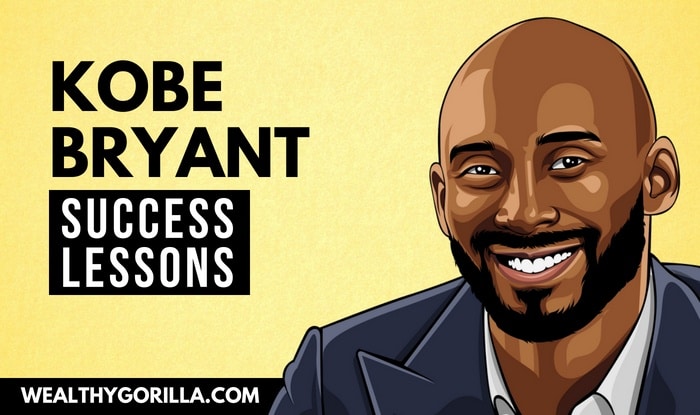Success
How to Get Paid for Helping Other People

So you want to help other people?
According to a survey by the non-profit group The Conference Board, the majority of Americans are unhappy with their current job.
However, a similar study by the University of Madison-Wisconsin shows helping others at work makes us happier.
It’s no wonder, then, that the National Bureau of Labor and Statistics estimates the human services industry is “projected to grow 22 percent from 2012 to 2022, much faster than the average for all occupations.”
How to Get Paid for Helping Other People
The best jobs in the world are where you are helping other people and getting paid for your efforts. What could be better than help the less fortunate in this world whilst you are keeping yourself looked after at the same time.
If this is something you’re interested in, then this article might just be for you.
In this article, we’ll explore a few jobs positioned in and around the growing field of human services, and discuss their benefits, drawbacks and degree requirements.
1. Social Worker
Social workers assist people facing difficult stages in their life to develop coping strategies that allow them to rejoin society.
Clinical social workers assist those struggling with psychological or behavioural issues, while child and family social workers help to safeguard the well-being of children and ensure the stability and happiness of their home-environment.
Benefits: A direct link between you and individuals most in need. A chance to do real societal good at the community level.
Drawbacks: The emotional toll that this career takes is unmatched. Seeing clients suffer through the legal system or not getting available resources will be hugely disappointing.
Requirements: Licensing requirements vary by state, and some states have multiple levels of licensure, but most require at least a bachelor’s degree in social work.
2. Substance Abuse/Behavioral Counselor
Substance abuse and behavioral counselors help those suffering from addictive diseases (e.g. drug addiction, alcoholism, gambling addiction or eating disorders) to deal with their symptoms, overcome their problems, and return to a normal life.
Benefits: A wide range of potential employers, from rehab treatment centers to prisons to community health clinics.
Drawbacks: A high work-load, which can lead to a thin work-life balance and general exhaustion/burn-out.
Requirements: Varies by state and position, though generally requires at least a high school diploma with extensive on-the-job training. More advanced roles are typically reserved for those holding a bachelor’s or master’s in fields like psychology or counseling.
3. School Counselor
School counselors work specifically with children and youth, acting as a guiding hand and caring presence in the lives of students. For younger grades, counselors help students to develop the crucial social skills needed for academic success.
For higher grades, counselors often double as career advisors and help students to prepare for college and adult life.
Benefits: The opportunity to work for a wide range of educational institutions, both public and private, from kindergarten to the early college level.
Drawbacks: Workload dependent on state and federal education budgets. Not enough time in the day to provide every student with the assistance they could benefit from.
Requirements: Typically requires a master’s degree in counseling or a related field, e.g. psychology.
4. Human Resources
If dealing with abuse and at-risk children sounds a little daunting, you might consider the private-sector side of human services: a career in human resources.
Human resource specialists serve the needs of private companies, helping to interview, place and train employees, as well as ensuring those employees are happy, properly paid and protected from abuse.
HR specialists also ensure an employer, and in particular other members of management, remain in compliance with state and federal labor laws.
Benefits: A 9-to-5 setting with clearly delineated work-life boundaries, and typically a management-level position.
Drawbacks: Mid-level management, so generally a thankless job. When things go right, no one notices. When things go wrong, the HR manager is held accountable. In addition, it requires a large amount of administrative paperwork.
Requirements: Most employers look for at least a bachelor’s degree in human resources, though similar degrees or equivalent work-experience can sometimes serve as an effective point of entry.
5. Life Coach
Don’t let sketchy self-help books or sales-y figures like Tony Robbins put you off: Becoming a life coach is a legitimate career encompassing a broad variety of positions.
Life coaches generally hold a degree in counseling psychology, but may also have a degree in an area of specialty, e.g. business.
Life coaches help teach their clients the tools of decision making and introspection required to manage the stresses of everyday life — from business to personal relationships — by breaking things down into actionable steps and clear goals.
Benefits: Typically a self-employed position with the freedom to work remotely, on one’s own schedule, and from a roster of personally selected clients.
Drawbacks: Like any form of self-employment, it can be difficult to establish oneself as an authority or gain a reliable rotation of clients. Thanks to high-gloss marketing campaigns by big names, can often be seen as somewhat shady, with life coaches maligned as snake-oil salesmen.
Requirements: Generally requires a degree in some field of psychology to approach work competently and establish credibility. Degrees in other fields may serve to help inform additional areas of specialization.
6. Teaching English Abroad
Teaching English as a foreign language to non-native speakers in other countries is an exciting career in an expanding field.
Instructors are typically employed by language instruction companies, which provide pre-designed curricula, a decent salary, and room and board.
Benefits: Little/no degree requirements with many companies. Opportunity for travel. Salary often increases depending on remoteness of posting, e.g. rural Saudi Arabia will pay much more than suburban Japan.
Drawbacks: Generally operate on a time-based contract, with penalties for early resignation. In addition, absent a degree in education or human services, may not offer transferability upon attempting to transition to a “normal” career at a later date.
Requirements: High school degree, willingness to relocate, and the ability to sign an annual contract.
7. Funeral Service Worker
Most people forget to realize that the funeral industry is also in fact, a service-based career. The funeral profession is an under-appreciated career option that is truly for those who care to lessen the grief of others.
Benefits: Help provide support to the bereaved during their first stages of grief. It will allow you to exhibit sensitivity and compassion for the people you work with. It’s also a way for you to translate your tolerance of how people of different faiths or cultures practice their beliefs.
Drawbacks: Work is stressful because of the emotional toll that comes with working in the death service. It might be easy to get pulled into the whole narrative of dying, as well as the potential to feel a heavy burden of sadness when the death is tragic and unexpected. The hours can be long, and you have to be on call during nights as well as weekends.
Requirements: An Associate’s degree, and passing a state and/or national board licensing exam. Many states require higher educational standards for funeral directors to maintain their license.
8. Adult Literacy Teacher
Whether you want to specialize in teaching adults who come from different cultures to speak English as a second language, or adults who just never had the opportunity to learn how to read or write, you can help your students learn a valuable skill that could potentially be life changing.
Benefits: You will be teaching people who genuinely have the desire to learn. You can choose the type of environment you want to work in – community colleges, community organizations, prisons, or even public schools.
Drawbacks: Abnormal schedule since adults generally work during the day, the classes must be offered outside of regular working hours.
Requirements: A bachelor’s degree in education is required to work as an adult literacy teacher in most states.
Start Helping Today
With a broad range of cross-transferable degrees, industries and applications, if you’re seeking a career change and want to help others, a job in human services may be just the help you need.
To get started, consult O*Net Online, or NCES’s College Navigator Tool to find programs near you.
It’s also worth considering the less explored career options of the service industry. The funeral profession is an under-appreciated career option that is truly for those who care to lessen the grief of others.
Success
The 30 Major Causes of Failure By Napoleon Hill

Have you ever read the book ‘Think & Grow Rich’?
If you’re a regular visitor to Wealthy Gorilla, then you definitely should have read the book by now!
Think & Grow Rich was written by Napoleon Hill and is considered to be one of the best self-development books of all time.
The book teaches the 13 principles of turning your desires into riches and contains hundreds of golden nuggets you can use to transform your life…
The 30 Major Causes of Failure
Within one of the chapters of Think & Grow Rich, Napoleon Hill lists the 30 major causes of failure. These are the reasons why 99% of people are failing in their lives.
The purpose of featuring and explaining these ‘major causes of failure’ within this article, is to show you why people fail, and how you can avoid doing the same thing in your own life.
Here are the 30 major causes of failure as described by Napoleon Hill:
1. Unfavourable Hereditary Background
The reason why this was put first on the list, was because Hill says it’s one of the toughest issues for people to overcome.
This basically means that someone is perhaps not naturally intelligent, and lack’s certain brainpower. They can take all the measures needed to improve their knowledge and become smarter, but they are still at a disadvantage.
2. Lack of a Well Defined Purpose in Life
If you don’t have a definitive goal that you’re setting out to achieve, a purpose that you’re trying to fill, you won’t become successful. You have nothing to hit, nothing to aim at. And therefore your direction is unidentified.
3. Lack of Ambition to Aim Above Mediocrity
There are many reasons why people might not have the ambition to aim above mediocrity. Whether it’s that they’re too lazy, too comfortable, too spoilt, or have no belief in “success”.
If you never have the ambition the aim higher, you never will aim higher than average. This means, you guessed it, you will never achieve more than average.
4. Insufficient Education
Another one of the major causes of failure is insufficient education. Don’t get this wrong. This does not solely mean a lack of formal education leading up to adulthood.
In many cases, and especially in various parts of the world, formal education is an issue. However, another big issue is that many individuals leave school and decide that they’ve done all the learning they needed to do.
When it comes to your career, specialized knowledge is a must, and it can only be learnt through experience on the job, and studying outside of working hours. Just turning up to work every day isn’t enough education.
5. Lack of Self-Discipline
Becoming successful isn’t easy. It takes a lot of discipline to consistently work hard at something until you finally start to achieve success from it.
There’s a lot of productive habits that need to be adopted in order to get the most out of your day, and therefore your week, month, and year.
6. Ill Health
Nobody can enjoy their success without good health, and in fact poor health can still hold you back from achieving it in the first place.
Here’s what causes ill health:
- Lack of exercise
- Over-eating junk foods
- Poor daily habits
- Over-indulgence in sex
7. Unfavourable Environmental Influences During Childhood
This essentially means that many people fail due to the environment they grew up in. Poor parenting, bad neighbourhoods, born into poor families etc.
It’s not a death sentence, but more people than not let these circumstances dictate their future. Something can be done, no matter what.
8. Procrastination
Everybody has a dream, but when it comes to taking action, most procrastinate. They wait until they’re ‘ready’, or until the ‘perfect time’.
Time goes by, but they’ve gone nowhere. Truth is, that they’ll never be a perfect time to start working on your dreams. You have to stop procrastinating and create a sense of urgency within your life.
9. Lack of Persistence
You won’t get anywhere without persistence. And persistence can be tough when you’re not seeing immediate results from all the hard work you’re putting in.
The truth is. Persistence is the key to everything. Every successful individual has had their own failures during their lifetime, but persistence meant that they got back up, and didn’t have to remain a failure.
10. Negative Personality
You know those people that always seem to complain about things, but never change them? How about the people who always tell you that they can’t do something?
Thinking negatively will only ever bring you a negative life. This is one of the biggest causes of failure, and changing your mindset from negative to positive should be a very high priority.
11. Lack of Controlled Sexual Urge
Most people will deny that this one affects them, but it does. The sexual stimulus has the power to influence people into action more than any other type of energy.
This means you’re likely to be spending a lot of your time chasing this, becoming distracted, and losing sight of your goals.
12. Uncontrolled Desire for ‘Something for Nothing’
Ever come across people who want something for nothing?
They believe that they can try and get what they want without helping anyone else get what they want. And that’s a big mistake.
You see, you only start to get the things you want in life when you’re able to help other people. Every business that succeeds, does so because it is helping enough people to be profitable.
13. Lack of a Well Defined Power of Decision
Napoleon talks about how good decision-makers are able to make quick decisions and then change them slowly, as opposed to the other way around. The ability to make quick decisions is incredibly important for success.
After all, if you’re unable to make decisions, then you’re not going to be able to build a business, that’s for sure. We make thousands of decisions every day, so this ability is key.
14. One or More of the Six Basic Fears
In Think & Grow Rich, Hill also describes the basic fears that all humans have in life. The basic fears are:
- Fear of poverty
- Fear of criticism
- Fear of ill health
- Fear of loss of love
- Fear of old age
- Fear of death
Possessing one of these six basic fears may also be one of the major causes of failure. It’s important to remember in this circumstance, that we all eventually die. Therefore we have nothing to lose, and the fear above should not keep us from living our dream life.
15. Wrong Selection of a Mate in Marriage
Your marriage is going to affect your career. That’s a given. If you’re in a marriage where your partner supports you, and you are both happy, then it’ll be beneficial to your career.
If however, you’re always arguing, then it’s going to affect your performance during work. Choose your life partner wisely.
16. Over-Caution
In order to get far in life, you have to take risks. You’ll only get so far by playing it safe. Risks are often necessary, and they don’t always work out. But eventually, they do.
Those who are too cautious, and afraid to venture into the unknown, will often fail.
17. Wrong Selection of Associates in Business
Who you choose to do business with can often be another huge cause of failure. Choosing someone who lacks the right qualities can often end up in them making the wrong decisions, and ruining all your hard work in business.
Another choice you need to make wisely.
18. Superstition & Prejudice
Superstition is a big issue people face with their mindset. In fact, if you follow Tai Lopez, you’ll know that he likes to give away free cars every so often.
Many of the people who have won the free cars, did not believe they’d really won. They thought it was fake. So guess what? Tai gave the car to someone else.
19. Wrong Selection of a Vocation
So many people make this common error. Picking the wrong line of work. Unless it’s something you can’t go a day without thinking about, then you shouldn’t be doing it.
However, 95% of people hate waking up on Monday because they have to travel to jobs they do not like. They are only there to get that paycheck. Why?
I’ll never understand. Find something you love.
20. Lack of Concentration of Effort
Do you know how long the human attention span is?
It’s not very long at all. This means concentrating on something for a long period of time is ridiculously hard. And it’s even harder if you’re trying to concentrate on something you don’t like.
21. The Habit of Indiscriminate Spending
Do you often buy things you don’t really need?
How much money has that new T.V made you recently? $0? That’s strange…
Wasting money instead of investing it in yourself, is what separates the rich from the poor. Think about that the next time you want to buy a whole new wardrobe.
22. Lack of Enthusiasm
Enthusiasm is a key to achieving success with anything you do. Without enthusiasm or a real passion for your work, you will be unable to go the distance.
This is the same reason why people who chase money will never find it. When money is a driving force, instead of passion, you will give up on the activity long before you become successful at it.
Passion for something means you want to do it every single day, regardless of how much money you’re earning, or the number of setbacks you’re experiencing.
23. Intolerance
Being open-minded is something every good businessman should be. Open to new ideas, new ways of thinking, new types of people.
Intolerance of others, and their ideas, is going to hurt your reputation. Especially when the people you’re intolerant of are people you work with or do business with.
24. Intemperance
Intemperance, similar to intolerance in many ways, is another one of the major causes of failure. If you’re someone who has a tendency to get angry, you’re going to end up annoying a lot of people. You’re also going to end up ruining your productivity.
25. Inability to Cooperate With Others
Collaboration with others is inevitable. After all, every business is in the business of people. If you are unable to cooperate with other people, then you won’t get very far at all.
The only way to get what you want is to help other people get what they want; and that won’t happen for anybody who refuses to cooperate with others.
26. Possession of Power Not Acquired Through Self-Effort
People who have been given power, and not earned it themselves, are destined to fail.
They are destined to fail because in most cases they will not have adopted and mastered the essential habits and skills required to earn this power in the first place.
They also most likely lack the experience and knowledge required to use their power properly.
People who acquire power without this effort will not be able to control it, use it efficiently, nor should they be trusted with it.
27. Intentional Dishonesty
It doesn’t matter whether you’re lying to yourself or to other people. A lack of honesty will come back to haunt you in the end. People won’t want to work with you. They won’t trust you. You won’t be true to yourself.
The whole thing’s a house of cards.
28. Egotism & Vanity
Ego often gets in the way of people improving their knowledge and education. It also gets in the way of collaboration.
I’ve come across many people who are either too stubborn to understand why they’re wrong or collaborate with other people because they think they’re bigger than everyone else.
29. Guessing Instead of Thinking
If you’re guilty of this, you’re just asking for failure. Guessing instead of thinking? Come on.
There are a lot of people who start arguments because they have this type of mindset. They just assume, and then forget to actually do the research before forming their opinion.
Don’t be one of these people.
30. Lack of Capital
Lastly, lack of capital is 30th on the list of major causes of failure. Money is obviously an issue for many people who have dreams and ideas, in most cases to build the business they desire.
Often, if their business plan is good enough, they’ll be able to seek investors or be able to start smaller with lower costs.
Summary
Here’s a recap on the 30 major causes of failure from Think & Grow Rich:
- Unfavourable Hereditary Background
- Lack of a Well Defined Purpose in Life
- Lack of Ambition to Aim Above Mediocrity
- Insufficient Education
- Lack of Self-Discipline
- Ill Health
- Unfavourable Environmental Influences During Childhood
- Procrastination
- Lack of Persistence
- Negative Personality
- Lack of Controlled Sexual Urge
- Uncontrolled Desire for ‘Something for Nothing’
- Lack of a Well Defined Power of Decision
- One or More of the Six Basic Fears
- Wrong Selection of a Mate in Marriage
- Over-Caution
- Wrong Selection of Associates in Business
- Superstition & Prejudice
- Wrong Selection of a Vocation
- Lack of Concentration of Effort
- The Habit of Indiscriminate Spending
- Lack of Enthusiasm
- Intolerance
- Intemperance
- Inability to Cooperate With Others
- Possession of Power Not Acquired Through Self-Effort
- Intentional Dishonesty
- Egotism & Vanity
- Guessing Instead of Thinking
- Lack of Capital
How many major causes of failure have you been guilty of? Leave a comment below.
Famous Success Lessons
10 Success Lessons From Lionel Messi
Want to hear some of Lionel Messi’s success lessons?
One of my favorite inspirations is Lionel Messi, the world famous professional football player.
Messi is considered one of the best football players of all time. He’s won a lot of awards in the past proving just how good he is, including number #1 football player in the world.
Lionel Messi’s Success Lessons
Like most extraordinary people, Lionel Messi’s remarkable success did not come from pure luck or accident. In fact, he worked extremely hard and trained almost every single day to become who he is today.
Here’s 10 of Lionel Messi‘s success lessons:
1. Fight For What You Believe In
If you have a dream, you have to work hard to achieve it. Success will not come easy. There’s a price to pay and you must be willing to pay it.
Most people are not successful because they are not willing to do what it takes to produce the extraordinary results.
The difference between ordinary and extraordinary is the little ‘extra’. Extra means you must do more; go the extra mile, put in more effort, wake up earlier and stay later to produce more for what you truly desire to achieve in life.
“You have to fight to reach your dream. You have to sacrifice and work hard for it.” – Lionel Messi
2. Success Takes Time
This is one of my favorite quotes from Messi. It reminds me that success is a long-term process and it is not something that you can achieve overnight. So stop looking for shortcuts or get-rich-quick schemes.
Rome was not built in a day and Steve Jobs did not start Apple in just one night. It is going to take a lot of effort and consistency to produce amazing results.
Therefore, commit to working hard on your dream and never give up. The journey may not be easy, but the reward will be well worth it.
“It took me 17 years and 114 days to become an overnight success.” – Lionel Messi
3. Just Do What You Love
Does this ring a bell to you? Great people are able to produce great results because they love what they do.
And when you love what you do, you will do great work. Michael Jordan would never have excelled in basketball if he didn’t have love for the sport. Warren Buffett made billions through investing because he has an intense passion for doing just that.
Jack Ma can’t stop himself from thinking and talking about his business because it is in his blood. He sleeps, drinks, talks, walks and dreams his business at all times.
You have to be the same if you want to create something amazing in life. Love what you do and live your life with passion.
“What I do is play soccer, which is what I like.” – Lionel Messi
4. Improvement is Always Possible
You have to focus on improvement every day. If you are in business, you need to improve your business knowledge and skills. If you are a writer, you need to improve your writing skills every day.
As Tony Robbins, one of the best life coaches worldwide has coined it, commit to CANI or Constant-And-Never-Ending-Improvement.
The only way to become better in what you do is to commit to improvement every day.
So do something that will make you better every day. Read a book to improve your knowledge, level up your skills, write more, seek help from a mentor, etc.
“The day you think there are no improvements to be made is a sad one for any player.” – Lionel Messis
5. Give Your Team the Credit they Deserve
No one can succeed alone in this world. In fact, there’s no such thing as a real ‘self-made’ millionaire or billionaire. You need your clients and customers to support you. You need your staff and your partners to help you.
Walt Disney had Roy Disney, and Steve Jobs had Steve Wozniak, to help build their business empires. What about you?
“I’m lucky to be part of a team who helps to make me look good, and they deserve as much of the credit for my success as I do for the hard work we have all put in on the training ground.” – Lionel Messi
6. Don’t Ever Chase the Money
Stop chasing the money. Money is just the score from living your dream. It is a byproduct from your achievements.
The real winning comes from your progress. As long as you are moving forward every day, you will eventually reach your goals.
And stop chasing for the next shiny object. You do not have to compare yourself with others. Just be yourself and do what you are supposed to do.
“Money is not a motivating factor. Money doesn’t thrill me or make me play better because there are benefits to being wealthy. I’m just happy with a ball at my feet. My motivation comes from playing the game I love. If I wasn’t paid to be a professional footballer I would willingly play for nothing.” – Lionel Messi
7. Don’t Forget What’s Most Important to You
Sometimes we over obsess with something, and we neglect other more important things in life. I have seen people who chase money and they start to completely ignore their family members.
Never let this happen to you. Yes, winning is important, but you cannot win all the time and winning is not the only thing you have in life.
Always be grateful for what you have and appreciate those who are around you.
“There are more important things in life than winning or losing a game.” – Lionel Messi
8. Remember That It’s Not All About You
Always focus on winning as a team, instead of it being a one man show. Elon Musk, the guy behind Tesla, said this, “I don’t create companies for the sake of creating companies, but to get things done.”
You are in a team, regardless of whether you are in business or in sports, so work as a team.
Put your main priority on your team’s objectives rather than your own personal mission. This is how your team can grow and move forward.
“When the year starts the objective is to win it all with the team, personal records are secondary.” – Lionel Messi
9. Always Give Everything You’ve Got
You have to trust yourself and believe in your dream. When you have doubts, you will never put in your 100%.
People who truly believe in their dreams are willing to do whatever it takes because they know that their dreams will come true somehow. And this makes them pour in their 100% and give it their best effort.
Are you putting in 100% and do you believe in yourself and your dreams?
“There’s no doubt. It’s certain that I will be 100 percent.” – Lionel Messi
10. Learn to Accept Your Failures
Nobody can win all the time. Sometimes you make more progress and learn more from losing and experiencing failure.
You don’t have to feel frustrated or upset when you fail. It is just part of the cycle. You cannot have the sunshine every day.
Sometimes it will rain, sometimes it will be cloudy and sometimes the sun will shine up high. Things will come and go. So appreciate what you have right now and enjoy every moment, whether you are winning or losing.
When you win, work hard and continue to move forward. When you lose, work even harder and learn from your mistakes.
“Sometimes you have to accept you can’t win all the time.” – Lionel Messi
Summary
Here’s a quick recap on Lionel Messi’s success lessons:
- Fight for what you believe in
- Success takes time
- Just do what you love
- Improvement is always possible
- Give your team the credit they deserve
- Don’t ever chase the money
- Don’t forget what’s most important to you
- Remember that it’s not all about you
- Always give everything you’ve got
- Learn to accept your failures
These are my favorite lessons from Lionel Messi that inspired me to go further in life.
How many of Lionel Messi’s success lessons do you resonate with? Leave a comment below.
Famous Success Lessons
5 Success Lessons from Kobe Bryant

Want to hear some of Kobe Bryant’s success lessons?
Kobe Bryant is a beast;
I remember reading a story where he was called up his trainer at 4am to come and help him practice, and 20 minutes later when his trainer arrived, Kobe was already drenched in sweat.
They trained for a few hours on court and in the weight room, until his trainer went back to get some practice before the team practice at 11am.
When he came back, Kobe was on the other side of court practicing jump shots. He’d only just finished his morning training, right before team practice. Kobe had been there for at least 7 hours before the team training had even begun.
Kobe Bryant’s Success Lessons
There are many success lessons we can learn from Kobe Bryant and his sickening work ethic. And I’m not just talking about within basketball, but within life itself. Here are 5 of Kobe Bryant’s success lessons.
1. Reach Out to People in Different Areas
Besides the obvious ritual of reaching out and connecting with people in the same industry as you, something we can learn from Kobe Bryant is reaching out to those in different areas.
It would be foolish to narrow down the people you listen and learn from to just those on the same career path as you. Whether you’re an athlete, entrepreneur etc.
Since Kobe’s NBA career may be coming to an end within the next couple of years, he’s been reaching out to the likes of Oprah Winfrey and Arianna Huffington. In order to find out more about what they do, why they do it and how they became successful in their fields.
Kobe Bryant’s continuing his learning process and planning his future after the NBA by reaching out to others for great inspiration. Which brings me onto my next point, after his official quotes on the subject.
“I cold call people and pick their brain about stuff. Some of the questions I ask seem really really simple and some of them seem stupid, quite honestly, for them. But if I don’t know, I don’t know. I have to ask. I’ll just do that and ask questions. I want to learn more about how they build their business and how they run their companies and how they see the world.” – Kobe Bryant
2. You Can Always Learn More
It doesn’t matter how good you become at your chosen skill or craft, there is always potential for more learning and development. Many successful people might let their achievements go to their head, and make them think there’s nothing they can improve upon.
This really isn’t true; there’s always room for people to improve and learn more, which is exactly why Kobe Bryant and many other people have continued to grow year by year. It’s all about being hungry to learn more, always.
“It’s really about wanting to learn and feeling like your cup is always empty, because there’s always more that you can fill it with. That’s really the important thing and just continuing to learn, learn, learn.” – Kobe Bryant
3. Respect People Close to You
Earlier on in Kobe’s career, he was very aggressive towards his team mates, and would often give them plenty of orders that they didn’t seem to happy about, because he knew the game and knew what had to be done.
However, as he progressed through his career and got older, he realized it was more about respecting his team mates and communicating better. Not only to produce better results, but also to have happy relationships with everyone else.
“Oh, God. I was barking orders left and right. And these grown men are looking at me, like “Who the hell are you?” But I had studied the game so much. As I got older, I started understanding it’s not just about the game. People carry emotions with them. They have lives off the court. That helped me communicate better.” – Kobe Bryant
4. Where There’s Challenge, There’s Opportunity
A challenge is your opportunity to show the world what you can do, and that you can overcome any obstacles in your way. Where there’s a challenge, there’s a chance to prove people wrong.
Not only that, but it means your constantly bettering yourself and giving yourself more opportunities in the future. When you overcome challenges you grow stronger as a person, and that can only be a good thing.
In Kobe’s case, the strongest example of this was when he came back from his Achilles tendon injury, proving everybody wrong. Kobe had the confidence and belief that he could come back from the injury, and he did just that.
The fact that the chances of coming back after such an injury were low, made the challenge even more exciting, said Kobe.
“I have moments and I have days where I doubt myself. But to me, that’s the exciting part of the challenge.That’s when I realize this is a great opportunity to come out and show everybody this is how you bounce back. This is how you respond to a challenge.” – Kobe Bryant
5. Break Your Problems Down Into Smaller Pieces
If you have an incredibly big problem that looks too large to be solved, chop it down into smaller pieces. This way, it allows you to focus on specific issues individually which gives you a better chance of fixing them.
As Kobe explains below, this is what he did back in 2003, after all the endorsements he had dropped him and told him the situation couldn’t be fixed.
And this problem also relates back to the “where there’s challenge, there’s opportunity” success lesson. This was a big challenge for Kobe to overcome, but he did it and proved people wrong.
“In 2003, I was going through the Colorado situation, and it was very tough. I had to ask myself what I wanted to accomplish. I want to keep my family together. Have to focus on that. I’m a good basketball player: I want more championships. Focus on that. Every endorsement I had, they dropped me. Every marketing person said, “You can’t be fixed.” So I start chopping the problem into smaller pieces, and I focus on them. What else are you going to do?” – Kobe Bryant
Summary
Here’s a quick recap of Kobe Bryant’s success lessons:
- Reach out to people in different areas
- You can always learn more
- Respect people that are close to you
- Where there’s challenge, there’s opportunity
- Break your problems down into smaller pieces
How many of Kobe Bryant’s success lessons do you agree with? Leave a comment below.
-

 Richest People2 years ago
Richest People2 years agoThe 30 Richest People in the World
-

 Richest People1 year ago
Richest People1 year agoThe 50 Richest Rappers in the World
-

 Richest People1 year ago
Richest People1 year agoThe World’s 50 Richest Singers
-

 Richest People2 years ago
Richest People2 years agoThe 50 Richest Actors in the World
-

 Richest People2 years ago
Richest People2 years agoThe 50 Richest Athletes On Earth
-

 Entrepreneurs1 year ago
Entrepreneurs1 year agoJeff Bezos Net Worth
-

 Richest People2 years ago
Richest People2 years agoThe 50 Richest DJs in the World
-

 Top Lists2 years ago
Top Lists2 years agoThe 10 Most Inspirational Short Stories I’ve Heard




































